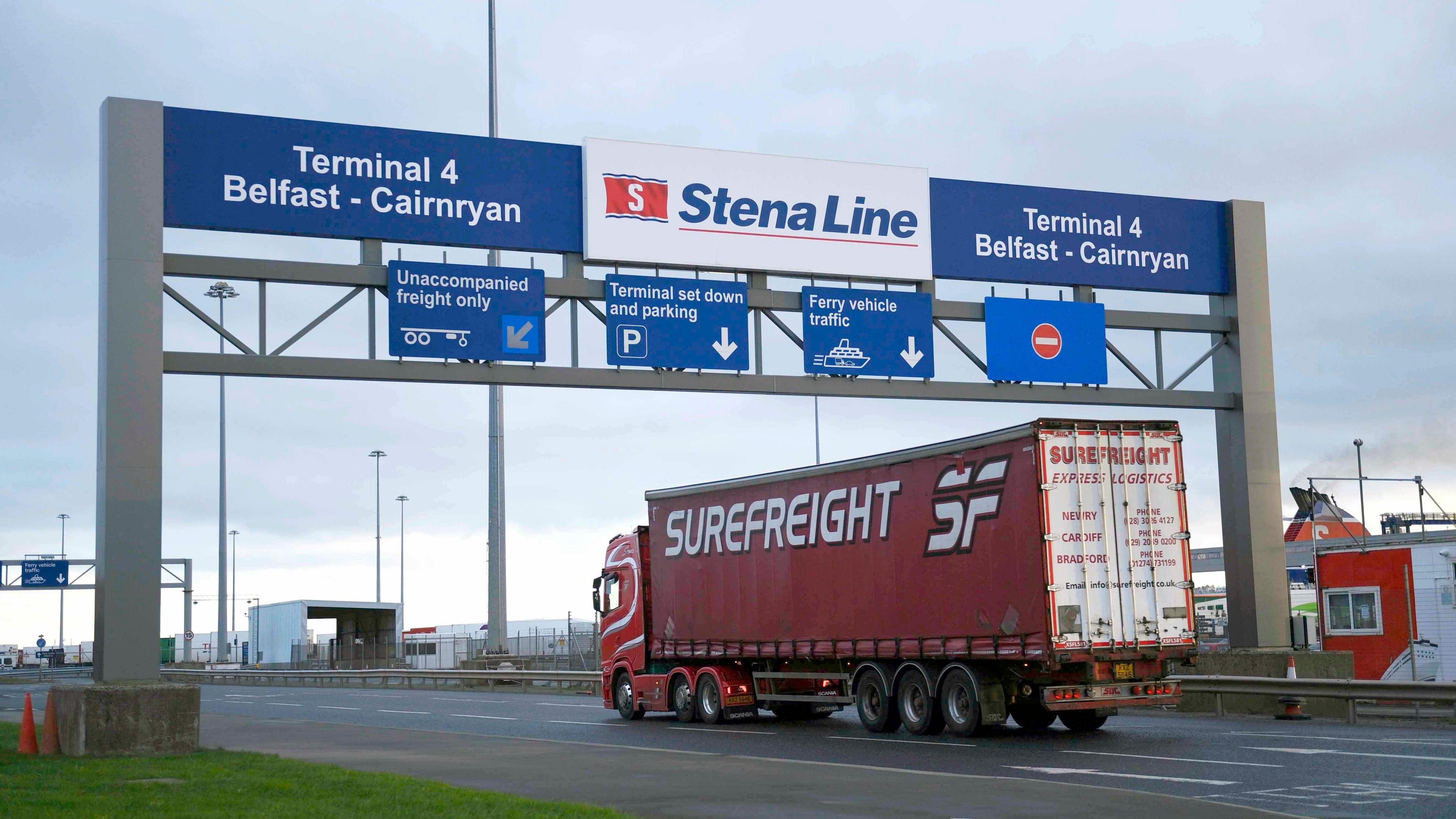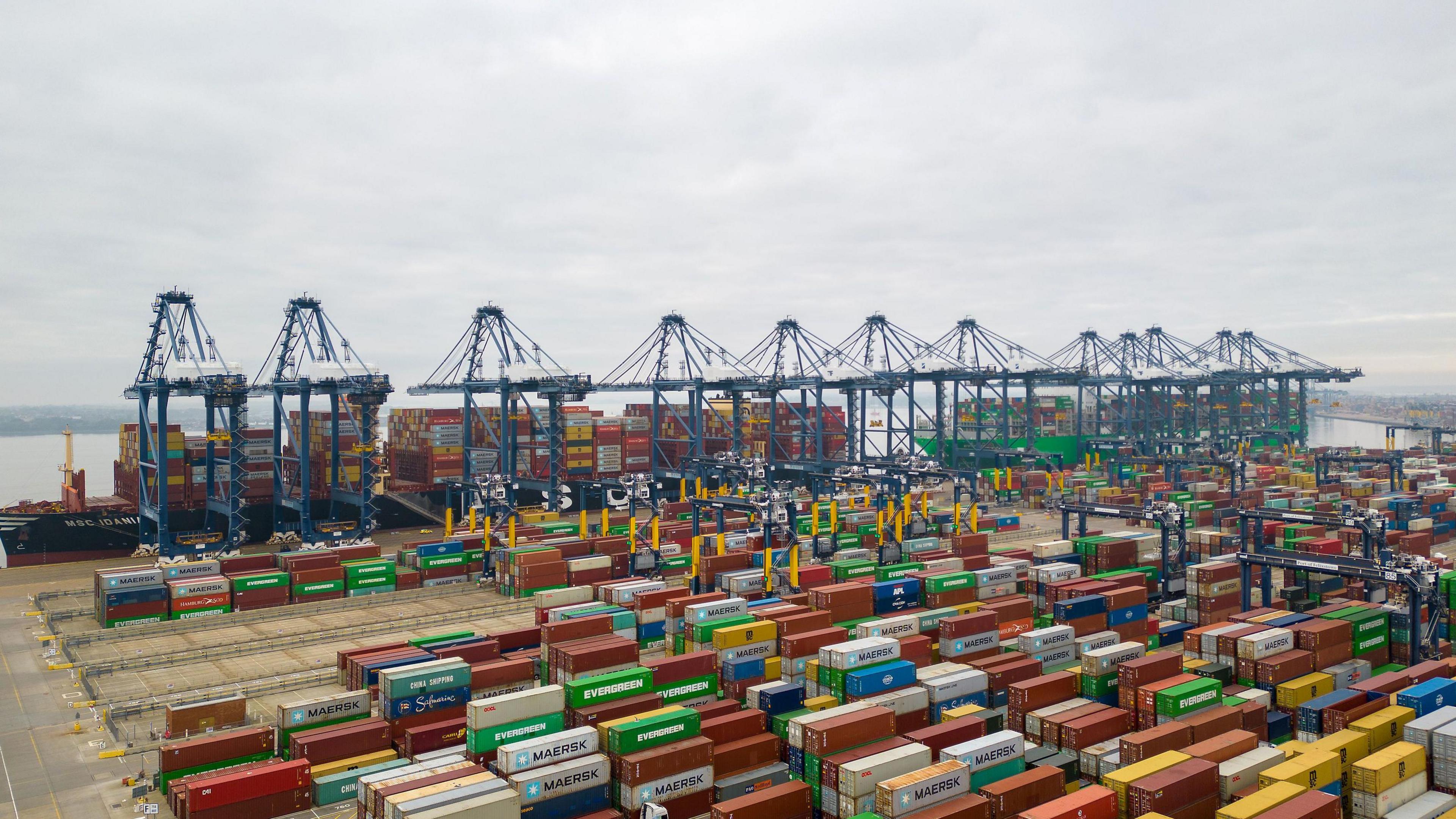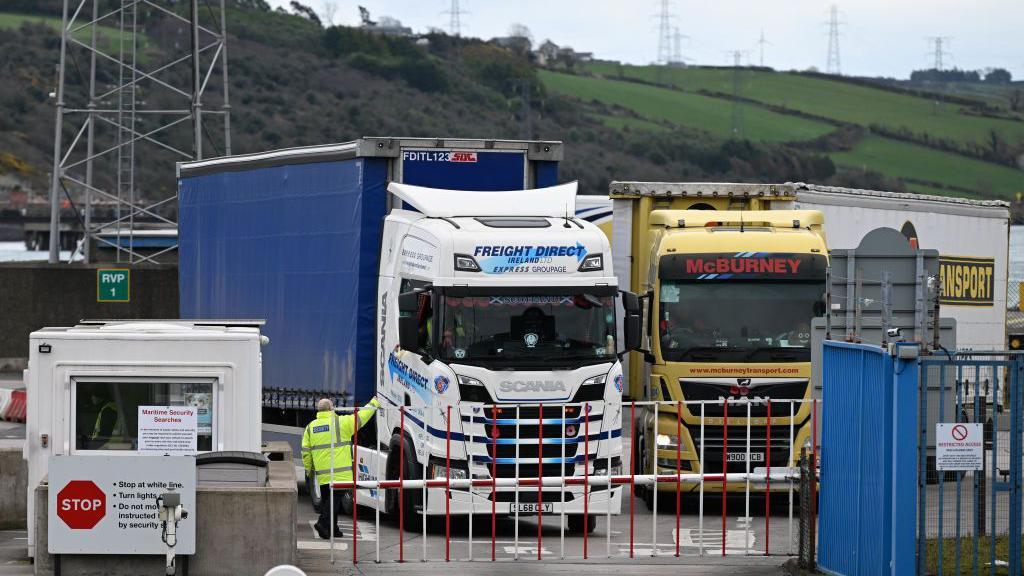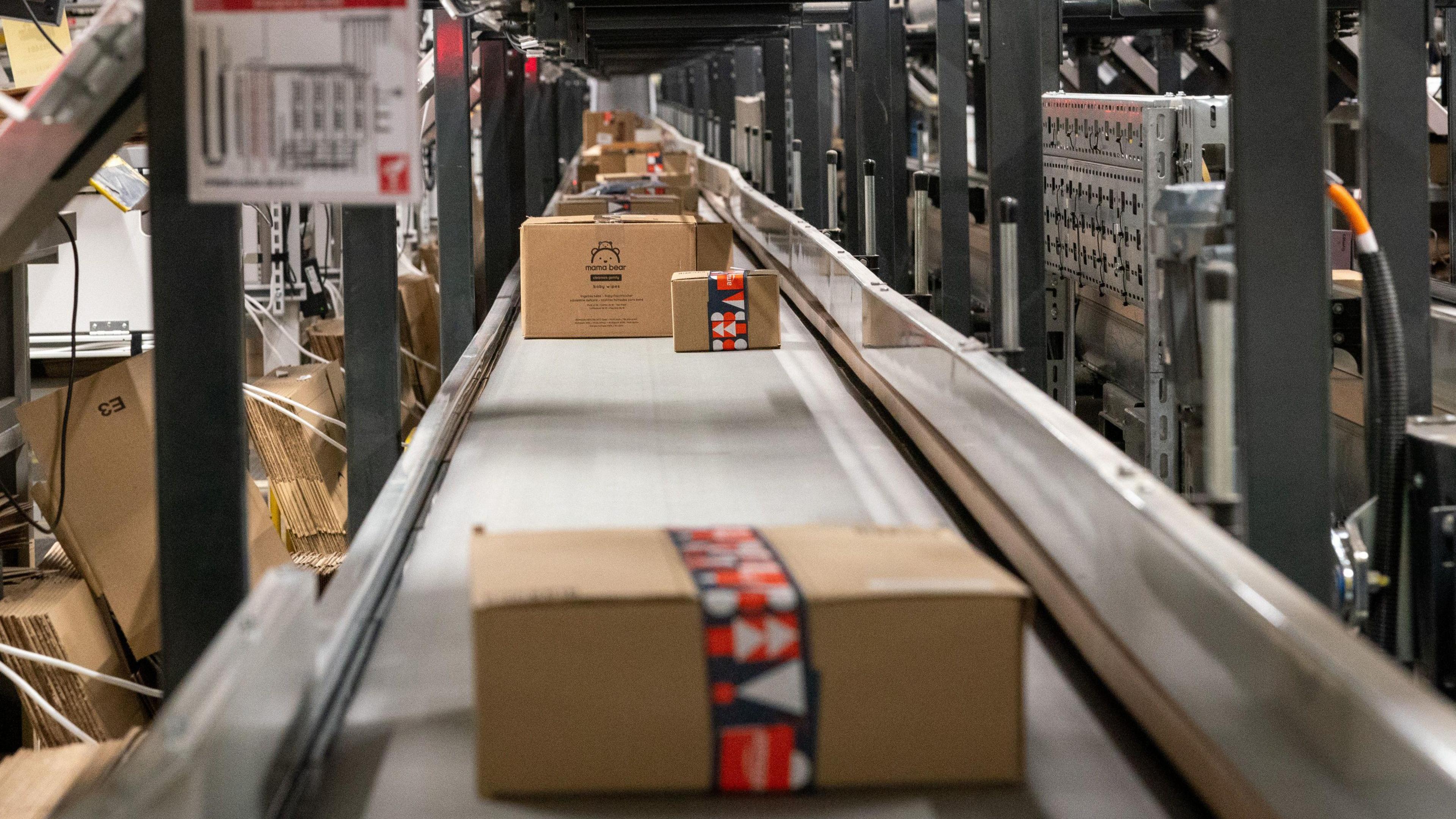Could new law tackle 'sea border' issues?

The Windsor Framework, effectively keeps Northern Ireland inside the EU single market for goods
- Published
A proposed law which could help limit the impact of the Irish Sea border between Northern Ireland and the rest of the UK will continue to be debated in the House of Lords on Wednesday.
The law is opposed by some Brexit supporters as is it could make it easier for ministers to keep the UK aligned with EU rules.
The government says the legislation will help "ensure continuity across the UK internal market".
The former Brexit minister Lord Frost says it amounts to using Northern Ireland "to keep this whole country in line with EU rules in certain areas".
Secondary legislation
The Brexit deal for Northern Ireland, the Windsor Framework, effectively keeps it inside the EU single market for goods.
That creates the Irish Sea border, a range of rules and processes required to send goods from Great Britain to Northern Ireland.
When the EU makes new rules for goods they will generally apply in Northern Ireland which in turn can make the operation of the Irish Sea border more complicated.
One way to minimise those complications is for the UK as a whole to update its rules in line with the EU.
The proposed law, the Product Regulation and Metrology Bill, would make it easier and quicker for ministers to do that by using secondary legislation.
Secondary legislation is law created by ministers under powers given to them by an Act of Parliament.
Statutory Instruments (SIs) are the most frequently used type of secondary legislation - they can be approved or rejected by Parliament but cannot be amended.

The proposed law could help reduce the impact of the Irish Sea border
Government guidance on the Bill says: "EU changes to product regulation only apply in Northern Ireland, resulting in divergence within the UK internal market as EU laws are updated.
"This Bill gives the Government specific powers to make changes to GB legislation to manage divergence and take a UK-wide approach."
Speaking for the government in the House of Lords earlier this year Lord Leong said: "We expect that the Bill will have a positive impact on trade between Northern Ireland and the rest of the UK."
However, Lord Frost said: "As we always feared, the Windsor Framework is being used as a tool to inhibit reform and change within GB and to keep this country in the tractor beam pull of EU laws and rules without having any say in them."
The Bill originated in the House of Lords and will be debated by the House of Commons next year.
What is the Windsor Framework?
In 2023 the Northern Ireland Protocol became the Windsor Framework.
It means that the goods trade across the border with the Republic of Ireland, an EU country, has remained undisturbed by Brexit.
The flipside is that goods arriving from elsewhere in the UK are subject to controls and checks—what is known as the Irish Sea border.
For the EU, the new framework left the basic architecture of 2019's protocol intact, creating a trade border between Great Britain and Northern Ireland to prevent a hard land border between Northern Ireland and the Republic of Ireland.
- Published10 December 2024

- Published9 December 2024

- Published6 December 2024

- Published1 December 2024
